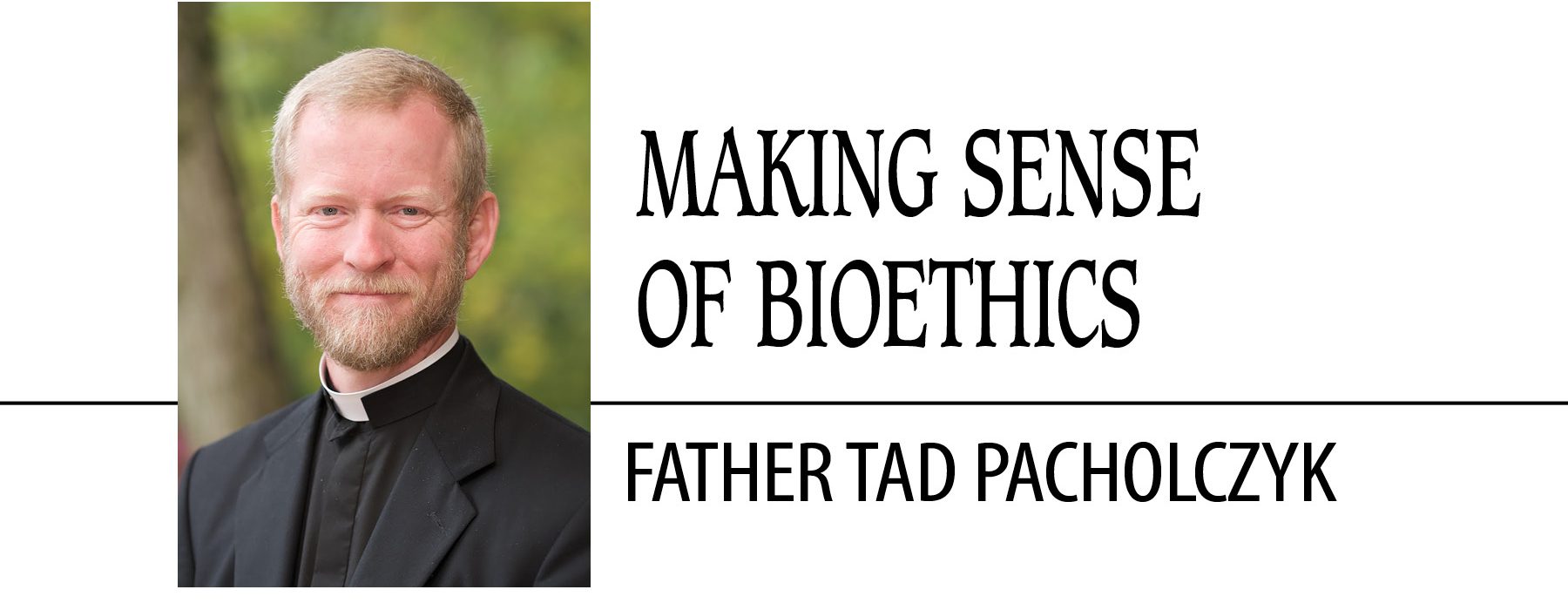February 26, 2019 // Perspective
‘Exceptions’ and the undermining of the moral law
Whenever we make small exceptions to universal moral rules, we shouldn’t be surprised that the rules themselves can be quickly undermined. Establishing an “exception” in one case makes people think they’re due an exemption for their case as well. Certain norms of moral behavior, however, do not admit of any exceptions, and we risk undermining morality altogether if we don’t recognize them. Moral norms governing the protection of human life are one such example.
A recent and lengthy article in The Guardian took a look at the practice of euthanasia in the Netherlands. It led off with this provocative title: “Death on demand: has euthanasia gone too far?” And the lead-in, “Countries around the world are making it easier to choose the time and manner of your death. But doctors in the world’s euthanasia capital are starting to worry about the consequences.”
The article points out that, “As the world’s pioneer, the Netherlands has also discovered that although legalising euthanasia might resolve one ethical conundrum, it opens a can of others – most importantly, where the limits of the practice should be drawn. In the past few years a small but influential group of academics and jurists have raised the alarm over what is generally referred to, a little archly, as the ‘slippery slope’ – the idea that a measure introduced to provide relief to late-stage cancer patients has expanded to include people who might otherwise live for many years, from sufferers of diseases such as muscular dystrophy to sexagenarians with dementia and even mentally ill young people.”
The logic behind these concerns is clear. If we are willing to make an exception to the rule that direct killing of an innocent human being is always wrong, then it only becomes a matter of “haggling over the price.” If killing by euthanasia can be allowed for a deeply emotional reason, it can certainly be allowed for other reasons too, and soon for nearly any reason, making it difficult, if not impossible, to put the cat back into the proverbial “moral bag.”
The almost instantaneous deployment of abortion-on-demand around the world several decades ago relied on very similar logic: first, grant a single exception, and in time virtually any instance begins to appear plausible and defensible. That exception, of course, was rape. By playing on the tragedy of sexual assault, abortion advocates managed to direct attention and blame toward the child, an innocent bystander, turning him or her, almost more than the rapist, into the culprit. After the child had been successfully targeted in situations of rape, he or she became generally targetable in other situations as well.
When it comes to abortion, the state of Louisiana in past years required some of the most comprehensive reporting in the U.S., and its detailed records are a helpful resource for determining how frequent abortions for rape really are. Abortionists were required to fill out a form titled Report of Induced Termination of Pregnancy (Form #PHS 16-ab) for every abortion. The form stated at the top: “Failure to complete and file this form is a crime.” Item 9d on the form was titled “Reason for Pregnancy Termination.”
Statistics compiled from these forms over a 14-year period from 1975 to 1988 reveal the reasons for 115,243 abortions in Louisiana during that time. The mother’s mental health was listed 114,231 times, for 99.12 percent of the total; the mother’s physical health, 863 times, 0.75 percent of total; fetal deformity, 103 times, or 0.09 percent of total; and rape or incest, 46 times, for 0.04 percent of total.
These data confirm other calculations indicating that, on average, about 550 women per year in the U.S. become pregnant as a result of rape. Assuming they all ended in abortion, this means that an average of 0.04 percent (1/25 of 1 percent) of all abortions have been performed for rape — or only one out of every 2,500! Yet for every one of the more than 50 countries that now have abortion on demand around the world, the initial step taken by pro-abortion forces was intense lobbying for abortion in the so-called “hard cases” — especially rape and incest. Once abortion advocates secured the availability of abortion for the “hard cases” they went on to argue for abortion in any situation.
Even if one granted, for the sake of argument, that rape justified a mother’s decision to end her child’s life, could that ever justify the other abortions that occur for nonrape-related reasons? It is duplicitous to justify 2,499 deaths from the one assault, unjust and traumatic as it may have been. By granting the exception, the moral rule has been, in effect, eliminated, and the doors have been thrown open to the practice of abortion for any reason. Encouraging exceptions is the entry point into a broader repudiation of our moral duties towards each other, the first of which is the duty to respect the inviolability of each other’s life.
Father Tadeusz Pacholczyk, Ph.D. serves as the director of education at The National Catholic Bioethics Center in Philadelphia.
The best news. Delivered to your inbox.
Subscribe to our mailing list today.






